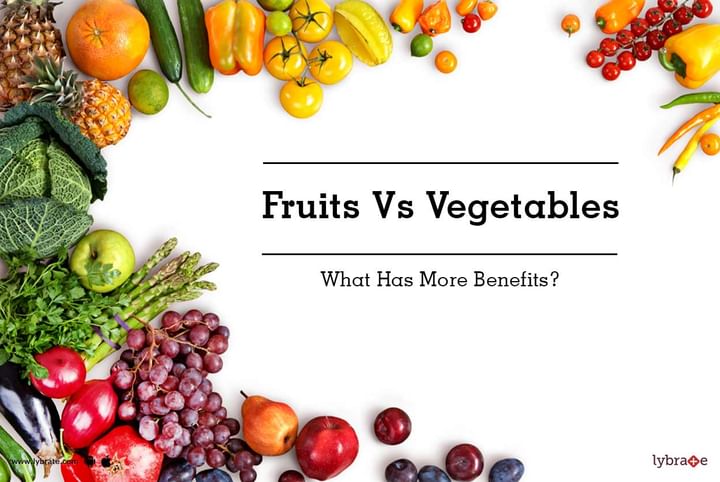Fruits Vs Vegetables - What Has More Benefits?
It is common knowledge that fruits as well as vegetables provide you with a natural combination of large number of nutrients, which help in the overall nourishment of your body. However, there are differences that are quite noticeable. Both the categories can be further divided into subcategories:
- Fruits consist of
- Vegetables consist of
Even though fruits as well as vegetables contain some similar nutrients, the number of micronutrients (chemical substances which are needed for the overall development and growth of the body) are generally higher in vegetables than fruits. On the other hand, fruits tend to have more macronutrients (types of foods required ion adequate amounts in one’s diet) as compared to vegetables.
Vegetables
Micronutrients are a class of nutrients that include vitamins, minerals and some phytonutrients that are mandatory for proper health. The right concentration of micronutrients plays a major role in supporting the healthy functioning of the organs. Leafy vegetables have an abundance of micronutrients such as the various vitamins as well as iron, calcium and magnesium; they play a major role in the proper functioning of the nervous system, bones, eyes, teeth, skin, muscles, blood cells, nails as well as the immune system. Root vegetables, along with being powerhouses of minerals and vitamins like the leafy vegetables, also additionally supply carbohydrates, especially complex-carbohydrates (carbohydrates which gradually supply constant energy to the body).
Fruits
The main difference between vegetable and fruits is that fruits contain substantially higher amounts of macronutrients than vegetables. These are the energy giving and caloric components of foods. These include proteins, carbohydrates and fats. Apples, bananas, oranges and other common fruits have higher concentrations of simple carbohydrates or sugars, like fructose. Vegetables tend to have lesser levels of fructose.
Fruits vs. Vegetables
Giving preference to vegetables over other foods would help in increasing the intake of nutrients that aid good health. At the same time, it helps in reducing intake of foods with high calories. On the other hand, fruits have low levels of fat and high level of fiber and water. This is required by the body for maintaining its digestive health. Fruits also have low sodium-content and high levels of natural sugars. This makes them an adequate substitute for processed foods that contain empty calories. Fruits contain calories that are densely packed with nutrients that supply vitamins and minerals along with energy.
All in all a balanced mix of both of them is highly recommended as one cannot substitute the requirement another fulfills. If you wish to discuss about any specific problem, you can consult a Dietitian/Nutritionist.



+1.svg)
